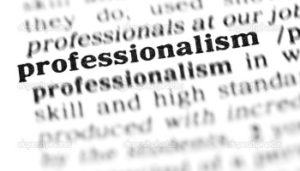 At its midyear meeting on January 20, 2018, the Louisiana State Bar Association approved a resolution from the Committee on the Profession revising the LSBA Code of Professionalism. See Resolution Proposed by the Committee on the Profession to Amend Code of Professionalism (approved Jan. 20, 2018) (redline of changes). These amendments—the first to the professionalism code since 1992—include the addition of a new preface noting that the legal profession “is a learned calling,” and, as a result, lawyers “should act with honesty and integrity and be mindful” of their responsibilities to the judicial system, the public, each other, and the rule of law. Id. The amendments also include “I-will” pledges encouraging lawyers to do various things, including the following:
At its midyear meeting on January 20, 2018, the Louisiana State Bar Association approved a resolution from the Committee on the Profession revising the LSBA Code of Professionalism. See Resolution Proposed by the Committee on the Profession to Amend Code of Professionalism (approved Jan. 20, 2018) (redline of changes). These amendments—the first to the professionalism code since 1992—include the addition of a new preface noting that the legal profession “is a learned calling,” and, as a result, lawyers “should act with honesty and integrity and be mindful” of their responsibilities to the judicial system, the public, each other, and the rule of law. Id. The amendments also include “I-will” pledges encouraging lawyers to do various things, including the following:
- To act with “fairness” and to refrain from engaging in “any demeaning or derogatory actions or commentary toward others.”
- To “cooperate with other counsel in all respects.”
- To work “to protect and improve” the image of the profession, and the system of justice.
- To use “technology, including social media, responsibility.”
- To speak and act in a manner reflecting “the professionalism expected of me as a lawyer.”
- To seek to serve the bench, the bar, and the indigent.
- To support new members in the profession.
- To keep up to date about “changes in the law, communication, and technology which affect the practice of law.”
On first glance, these principles of professionalism are mom-and-apple-pie unobjectionable. Who could discount or belittle “fairness,” “cooperation,” “service,” and “support”?
On second glance, however, these amendments—and the Professionalism Code itself—raise serious questions. For example, there are times when an effective and professional lawyer cross-examining a witness should be “demeaning” or “derogatory.” Likewise, there are times when a lawyer shouldn’t “cooperate with other counsel.” On these occasions, would a lawyer be “unprofessional” for “violating” the code?
Furthermore, is a standard suggesting that one should act in a manner “expected of me as a lawyer” really a standard at all? It sure doesn’t provide any guidance as to what conduct is expected and who is expecting whatever it is he is expecting.
Finally, do we really need a professionalism code to suggest that we “should” act “with honesty” and that we “should” keep up with “changes in the law … and technology”? We already have discplinary rules mandating these suggestions. See La. Rules of Prof’l Conduct r. 8.4(c); id. r. 1.1. Does telling us that we merely “should” do these things somehow diminish the hard-and-fast obligations that already exist?
The problem with these amendments—and with professionalism codes in general—is this: what constitutes “professional” conduct beyond mom-and-apple-pie hortatory language is something upon which we will never agree. Professional norms as to which there is consensus should not be the stuff of “professionalism” codes; they are and should be the stuff of disciplinary rules—or “legal ethics”—to use the widely-accepted misnomer. See generally, Dane S. Ciolino, Redefining Professionalism as Seeking, 49 Loy. L. Rev. 229 (2003).
Although everyone agrees that professionalism is good, no one can define it in a way that everyone else can unconditionally accept. For this reason, I have long argued that the profession should define “professionalism” in a way that will make the effort worthwhile. That is, we should redefine professionalism as “seeking.” Professionalism-as-seeking would implore us to examine, in ourselves and in our colleagues at the bench, bar, and academy, the norms, values, and assumptions that guide our professional conduct. It would not preach how we “should” act. It would not demand conformity. Rather, it would implore us to ask ourselves “what is the good professional life?” It would ask us to ask “how ought we to live our lives as lawyers?” See id. Engaging in that process, I submit, would be more useful than drafting and amending pledges in professionalism codes.
